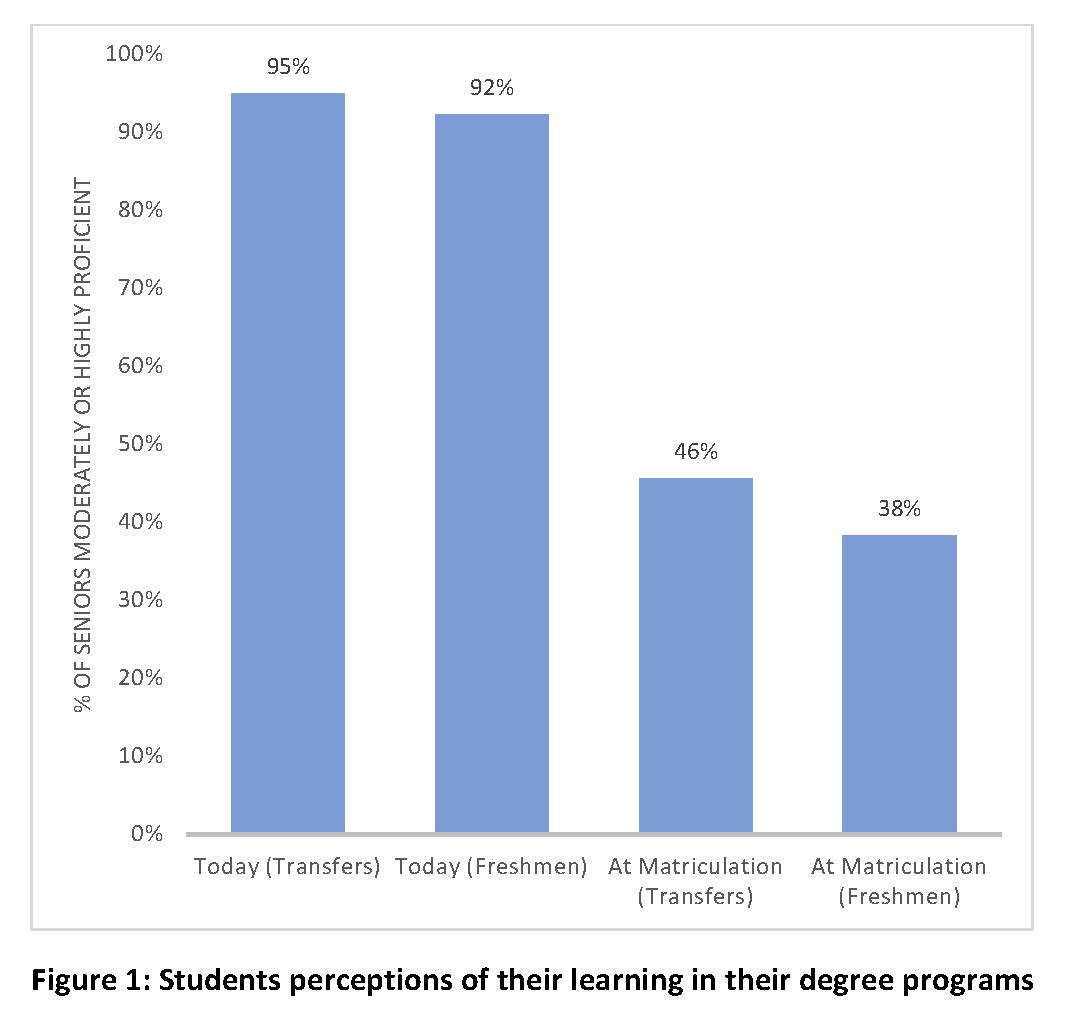Overview
Due to the COVID-19 emergency, academic programs were allowed choose between conducting an annual learning outcomes assessment, opting out for the academic year, or refocusing their assessment efforts on more immediate needs related to remote instruction. Seven of UC Merced's twenty-five academic majors and one stand-alone minor chose to complete an annual assessment of a learning outcome. Through this work, the faculty confirm students are developing the skills and knowledge expected of a graduate in their discipline.
For the academic year 2020-21, this page provides a summary of
- for all majors, students’ self-perceptions of their knowledge and abilities,
- for academic programs that chose to complete an annual assessment, the faculty’s conclusions about student learning achievement in undergraduate majors, standalone minors,and required General Education courses,
- actions identified to improve student learning, and
- budget implications for proposed improvements to student learning
Links to the intended learning outcomes for each degree are available here. An overview of the annual assessment process is available here. Undergraduate retention and graduation rates are available here.
Please address questions to Laura Martin.
Student Perceptions of their Learning
Across all majors, a large majority of seniors1 reported being highly or moderately proficient at the skills and knowledge expected of a graduate from their major or minor (Figure 1). These results are similar to those from past years (2013-14, 2014-15, 2015-16, 2016-17, 2017-18, 2018-19 & 2019-20), indicating that disruptions due to  remote instruction at the end of spring 2020 and in AY 2020-2021 did not lead to lower perceived levels of learning achievement among students.
remote instruction at the end of spring 2020 and in AY 2020-2021 did not lead to lower perceived levels of learning achievement among students.
These seniors also perceived growth in their knowledge and abilities while at UCM. Less than 4 of 10 reporting seniors (38%) who matriculated at UC Merced as freshmen recalled having high or moderate levels of proficiency in skills and knowledge particular to their major or minor at matriculation, and less than 5 of 10 reporting seniors (46%) who matriculated at UC Merced as transfer students recalled having high or moderate levels of proficiency in skills and knowledge particular to their major or minor at matriculation.
Faculty Perceptions of Student Learning
All eight undergraduate programs that completed assessment (100%) were pleased with the skills and knowledge demonstrated by students in relation to the intended learning outcomes. This indicates that, on the whole, students were achieving program benchmarks or were otherwise meeting or exceeding the faculty's performance expectations.
In drawing these conclusions, faculty examined diverse types of student work. These included presentations, project reports, exam questions, capstone papers, and applied writing assignments.
Faculty Actions to Improve Student Learning
While all programs (100%) were pleased with student performance, programs also responded to assessment results by identifying actions to support continued improvement in student learning.
Example actions included enhancing coverage of specific areas of learning, improving communication between instructors in lower division courses, modifying assignments to emphasize particular skills, providing examples and feedback,.
Budget Implications of Actions to Improve Student Learning
Of those programs identifying actions to improve student learning, only one program (12.5%) identified changes that require resources in addition to time from existing faculty or staff. This program anticipates that future faculty hiring will meet their need.
Faculty Commitment to Examing Student Learning in Majors, Minors, and General Education
As noted above, many programs chose to focus assessment efforts on immediate needs related to remote instruction in 2020-21 rather than completing a traditional learning outcomes assessment report. In 2020-21,
- 28% of majors,
- and 33% of standalone minors
submitted a report describing their efforts to assess student achievement of intended learning outcomes. No reports were submitted in 2020-21 for the general education program.
Student Achievement: Graduation and Retention Rates
For information on undergraduate retention and graduation rates, visit irds.ucmerced.edu/student-data
1Data from the 2021 Graduating Senior Survey. Values are averages across all students. For each learning outcome for their major, graduating seniors rated themselves as highly proficient, moderately proficient, barely proficient, or not proficient for two time points: the time they took the survey (Today) and, retrospectively, when they started at UCM (When started at UCM).

